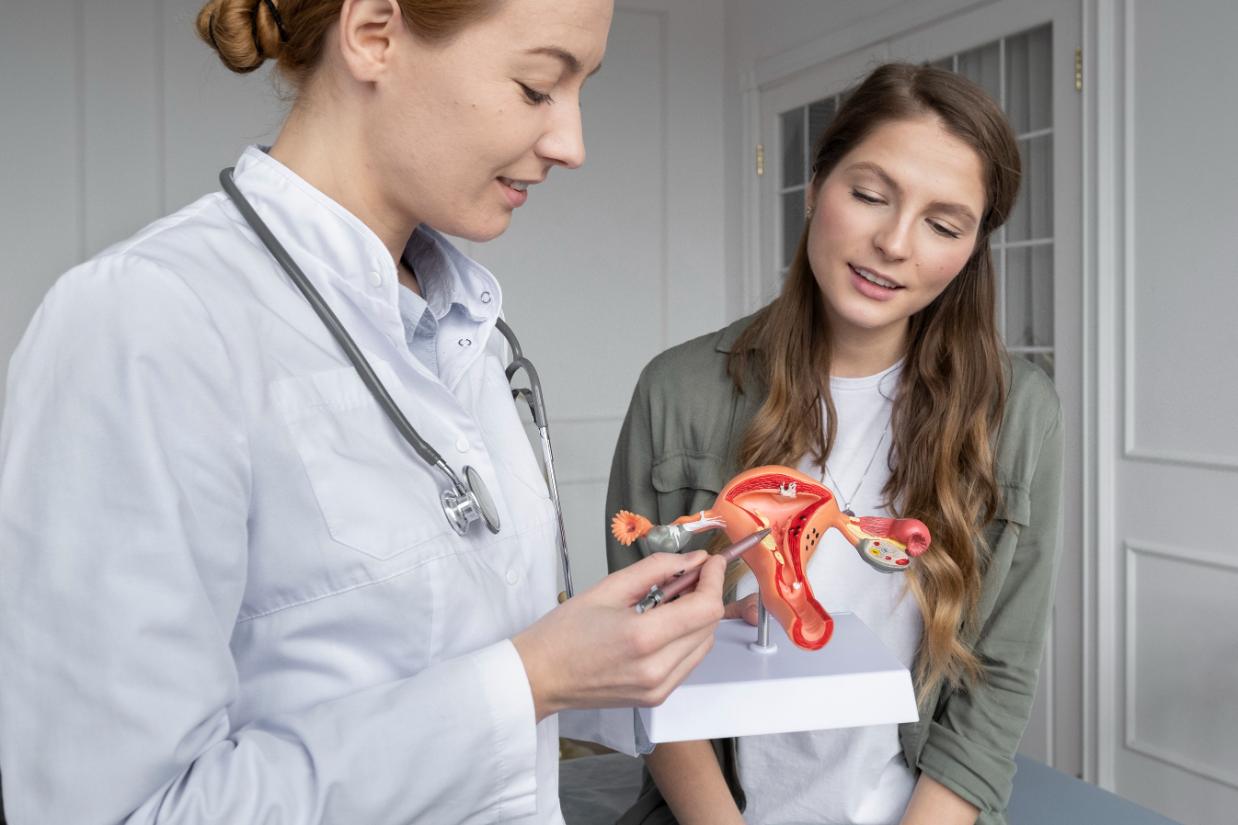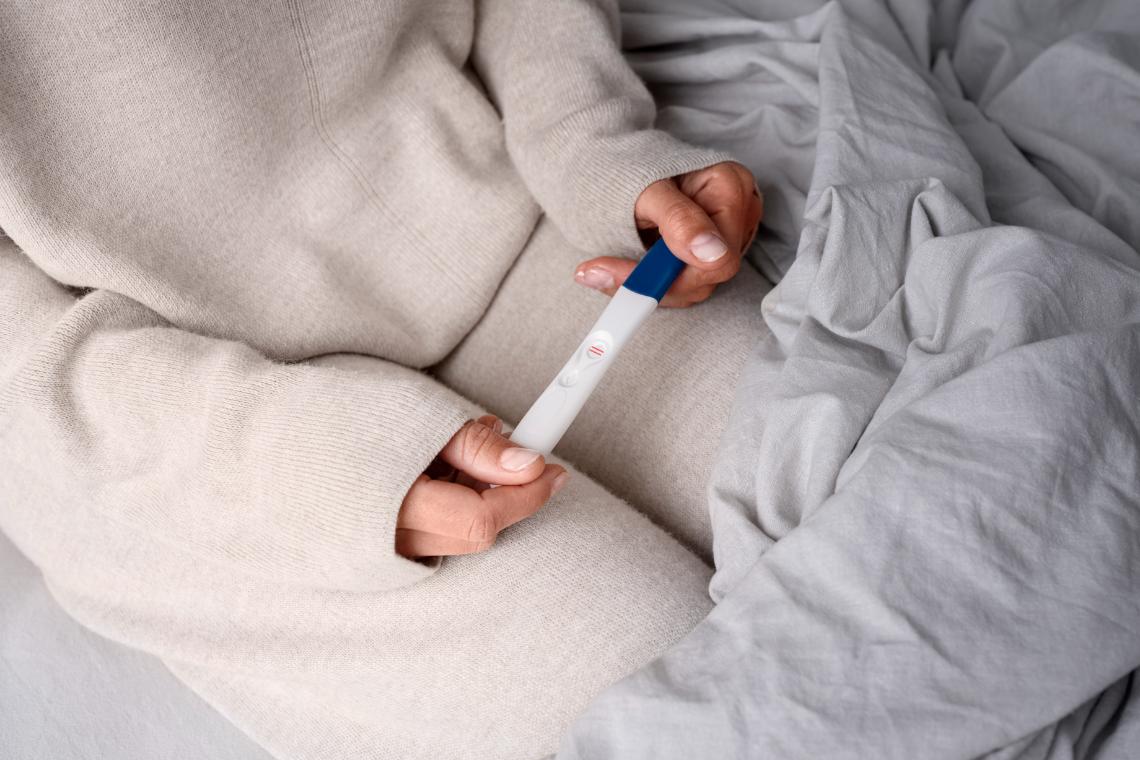
Egg production is a lifelong process for women, and as they age, the amount and quality of their eggs steadily decline. An egg is typically released by a woman once a month. If a woman is not pregnant during that month, the eggs that are not chosen to ovulate will disintegrate and the cycle will start over. Follicles in developing eggs release a hormone called anti-Mullerian hormone (AMH). An accurate measure of a woman’s ovarian reserve may usually be found in her blood level of AMH.
What is AMH Level
In order to determine a woman’s ovarian reserve or egg count, OBGYNs and infertility specialists often employ a laboratory test known as anti-mullerian hormone (AMH). The tiny follicles in a woman’s ovaries create this hormone. AMH is one way to measure the quantity of oocytes. You may find out how many eggs you still have and whether your ovaries are aging too rapidly with an AMH test. It can show that your window of opportunity to become pregnant is shorter. How successfully you react to injectable fertility medications that stimulate your ovaries to develop numerous eggs in preparation for in vitro fertilization (IVF) may also be shown by an AMH test.
Which AMH values are typical for each age group?
Your age affects your AMH level. Adolescence is when women’s AMH levels begin to rise, and they peak at age 25. AMH levels then eventually drop after that. AMH levels are measured by providers in nanograms per milliliter, or ng/mL.
It is normal to experience a decrease in ovarian reserve in your 30s, 40s, and 50s as AMH levels typically decline as you age. Below are the AMH levels for different ages.
AGE AMH levels
20–25 years 4.23 ng/mL
26–30 years 3.48 ng/mL
31–35 years 2.43 ng/mL
36–40 years 1.28 ng/mL
What are the causes of low AMH?
A person with low levels of AMH may have fewer eggs in their body. Over time, the number of follicles or eggs declines, and with them, the amount of AMH hormone produced by the cells surrounding the egg in the follicle.
There are several possible causes of low AMH levels. Let’s, explore a few of the main causes below: Age
Age
Age is one of the primary causes of a Low AMH level. From birth, every woman possesses all the eggs she will ever need. After that, these eggs are utilized by the body naturally every time an ovulation cycle occurs, all the way up until menopause. As a result, when a woman ages, her ovarian reserves and AMH level will both gradually decline. The women’s egg production starts to decline in their mid-30s. Because of this, a woman’s odds of becoming fertile also start to decline at that point when her levels of AMH start to decline.
Endometriosis
It is a disorder in which tissues that normally develop inside a woman’s uterus instead grow outside of it. This is an extremely painful reproductive system illness that leads to inflammation in the fallopian tubes and ovaries, which lowers the amount of AMH.
Polycystic Ovary Syndrome (PCOS)
The overproduction of male sex hormones by the ovary is one of the most prevalent female reproductive problems nowadays. Thus, the AMH level may be impacted by the little cyst in your ovary.
Extremely Unhealthy Diet
Fat and processed foods are bad for maintaining appropriate AMH levels. Eating unhealthy food can make you obese, which can lead to a number of health problems, including low AMH levels.
Genetic Factors
The low amount of AMH may be caused by an inherited genetic disease. Your AMH level may be genetically influenced if you have family members with low AMH levels.
Mental Well-Being
A low AMH level might be brought on by stress. Having mental health problems naturally reduces a person’s likelihood of becoming pregnant. To try to conceive, one must be in good physical and mental health. Additionally, reducing stress might raise AMH levels.
When should AMH levels be tested?
If you are a woman over 30 who is having trouble becoming pregnant, you might want to look into your AMH levels. A woman can become pregnant even with low levels of AMH since she is still able to produce viable eggs each cycle. It can take a bit longer than intended.
An AMH test might not be necessary unless you are having reproductive problems or wish to store your eggs in hopes of becoming pregnant later in life. Seeing a figure that is below average can occasionally be quite unsettling and worrisome. Ultimately, the decision to be aware of your egg reserve is your own.
Also Read: How Do Your Irregular Periods Affect Your Chances Of Getting Pregnant?
Does AMH affect the ability to get pregnant?
If you have low amounts of AMH (which varies each month), you can still become pregnant naturally. If your periods are regular, you will ovulate one egg every month. You can expect similar pregnancy rates to women in your age group with high AMH levels. Regardless of the AMH level, a woman’s ovary will go through maturation and release one egg monthly. This will not be influenced by the total egg count in the ovary. In any case, immediate consultation with a fertility specialist is necessary if diagnosed with low AMH. By doing this, you’ll ensure that recommendations specific to your results and situation will be provided.
Conclusion
Doctors may be able to identify potential reasons for infertility and determine if a low egg count is a contributing factor in cases of infertility by measuring AMH. Nonetheless, female infertility treatment is not always indicated by a low AMH level. Rather than being a fertility sign, it serves as an indication of ovarian reserve. If you are struggling with infertility, then you should talk to your doctor and get your AMH levels checked. Infertility specialists at KJK Hospital will measure AMH levels to help determine fertility problems and the likelihood of successful fertility treatments. If your AMH levels are low, our experienced infertility specialists will suggest appropriate treatment methods to increase your chances of conception. We offer the best IVF treatments, helping you on your journey to getting pregnant naturally or through assisted reproductive technologies. For more information and appointments, feel free to contact us now!
Phone Number: 8921727906, 918547424080
Email Id: info@kjkhospital.com






